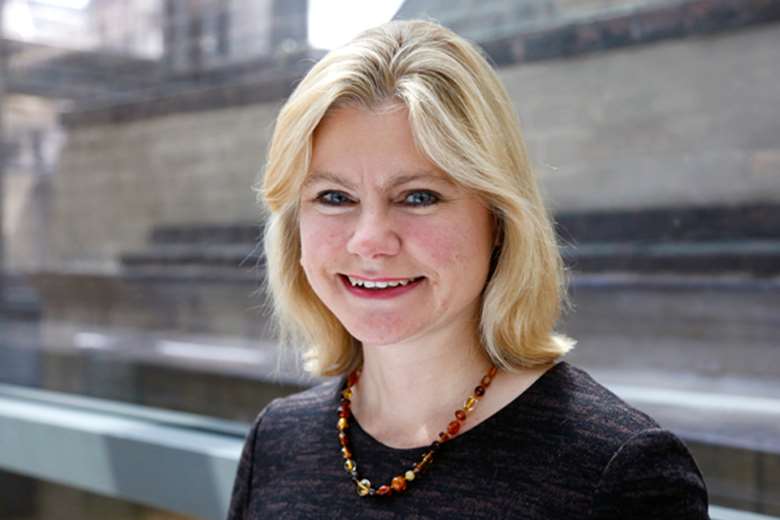Early years settings to receive £50m to improve social mobility
Joe Lepper
Thursday, December 14, 2017
The government has pledged to plough £50m into bolstering early years provision in disadvantaged areas, as part of an action plan to improve social mobility.

The investment is part of an £800m package of measures in its social mobility action plan, called Unlocking Talent, Fulfilling Potential, aimed at boosting the life chances of disadvantaged young people
The £50m early years investment aims to provide better access for children to highly qualified early years staff in areas of high deprivation and will be focused on improving nursery provision within school settings, as they are required to have graduate teachers.
The cash will be used to ensure more newly built schools have nursery provision and to introduce and expand provision in high-performing primary schools.
"Early years settings with higher-qualified staff benefit all children, but disadvantaged children stand to gain the most," states the plan.
"As graduate teachers and leaders are a requirement in school-based settings, we will focus on ensuring more new schools include nursery provision and on introducing and expanding nursery provision in good existing schools, both with a focus on disadvantaged children."
In addition, the early years investment will be used to seek out and promote examples of school-based early years settings that are already successfully improving the lives of disadvantaged young people.
The action plan says the measures are needed as 40 per cent of the overall gap between disadvantaged 16-year-olds and their peers has already emerged by the age of five and around two fifths of disadvantaged five-year-olds are not meeting the expected literacy standard for their age.
The plan also raises concerns about the wide regional variation in the development of disadvantaged young children.
"While 71 per cent of disadvantaged five-year-olds in Lewisham achieve a good level of development, in York it is only 46 per cent," states the action plan.
Other early years promises in the plan include working with Public Health England to ensure health visitors and early years staff have better access to children's speech, language and communication support. This includes developing training and producing an early language assessment tool.
In addition, £8.5m will be invested in a support scheme where councils that have effective strategies in place to support families with young children will help other areas.
Pre-school Learning Alliance chief executive Neil Leitch has welcomed the action plan's focus on early years provision but says extra funding is needed across the whole sector, which has been "chronically underfunded" in recent years.
"A commitment to improving access to early language and literacy is of course welcome, but quality early years provision is so much more than this - and until the government is willing to fund the whole sector adequately, it's hard to see plans to improve social mobility being anything more than an aspiration," said Leitch.
"The Education Secretary is right to say that where you start in life often decides where you finish. It's time, then, that the government put its money where its mouth is and invested what's needed to ensure that all children get the start they deserve."
But Purnima Tanuku chief executive of National Day Nurseries Association, criticised the decision to focus funding on school-based nurseries.
"Private, voluntary and independent (PVI) nurseries care for 77 per cent of pre-school children in England and excellent work goes on there, developing children's literacy and numeracy skills through play and offering flexibility for working parents. Many have graduate teachers. But they are being overlooked, while nursery schools are encouraged to create additional provision.
"This sends out an unpleasant and unsupportive message to the PVI nursery sector."
The action plan also pledges to close the attainment gap in primary and secondary schools, improve post-16 technical education and boost the employment skills of young people.
Other measures include launching a consultation on improving careers support and a £23m Future Talent Fund, to pilot new methods of teaching pupils with high attainment in disadvantaged communities is also included in the plan.
In launching the plan Greening said: "In modern Britain, where you are born, where you live, where you go to school and where you work directly affects where you get to in life.
"Talent is spread evenly across this country; the problem is that opportunity isn't. We need systemic change and we need everyone - government, employers, education professionals and civil society - to work together so that social mobility runs through everything we all do."
In its response to the plan the Local Government Association is calling on the government to give councils more say in local decisions around improving local education provision.
"To ensure every child has a good school place, councils also must be allowed to direct all schools to expand to meet sharp increases; ensure they take vulnerable pupils if it's in the child's best interests; have a say on where new schools are built; and be able to set up their own trusts to support any orphaned schools forced into becoming an academy if they cannot find a willing sponsor," said Richard Watts, chair of LGA's children and young people board.
The action plan has been released just a week after all four members of the Social Mobility Commission, quit in protest at a lack of government commitment to improving social mobility.




